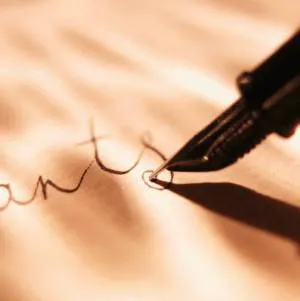
On Annotating Books
This content contains affiliate links. When you buy through these links, we may earn an affiliate commission.
Most of my back pockets are speckled with ink stains—not because I’m a writer, but because I’m a reader and a voracious annotator of whatever I’m reading. It’s rare to find me sitting with a book and no pen nearby. A book in my library with no markings or dog-eared pages is a pretty sure sign of an unread book. Do I do it to remember a passage? An emotion? To collect for some future project? No, I couldn’t really tell you why I do it; it’s become a tic. Whether or not I open this book again, I must make note of this passage because, well… just because.
It started with Fahrenheit 451, the second sentence underlined: “It was a special pleasure to see things eaten, to see things blackened and changed.” The rest of the book is covered in underlinings and brackets, and nearly every other page is dogeared. Though I’ve always been a reader, it wasn’t until college that I read a book as carefully, thoroughly, fervently as Fahrenheit 451. Partially because I had to write a paper on it. But mostly because the sentences are lovely and insightful—perfectly describing the way books and words made me feel. “The magic is only in what books say, how they stitched the patches of the universe together into one garment for us.”
Now, I annotate whatever strikes me, whatever resonates; it’s a reflex. I sit with a pen in hand and bracket without thinking. Sometimes it’s interesting phrases—“toothpaste suburbs” (from Cosmopolis by Don Delillo)—but I can bracket swaths of paragraphs, brackets within brackets. There are sentences that can stand alone—”Even nightmares have to sleep now and then” (from “The Faery Handbag” by Kelly Link)—and ones that make little sense out of context—”Joe was at first shocked by this suggestion, and then suddenly not” (from The Amazing Adventures of Kavalier and Clay by Michael Chabon); a year after reading the novel, I have no idea what’s going on in this scene, but it was so important, the whole phrase is underlined.
I love paging through old books and reading the bits I’ve annotated. Occasionally they’ll bring me back to that first read—the surprise and delight of a sentence/phrase/whole paragraph—but mostly the sentences feel fresh and new. Looking at old annotations is like seeing a version of myself from two or three or five years ago. They are, for one reason or another, what I found important.
Needless to say, I love borrowing books from annotating-friends, or finding a stranger’s annotations in used books (though I could’ve done without the hot pink college class commentary when reading Margaret Atwood’s Oryx and Crake). Reading someone else’s annotations is akin to them glancing over your shoulder and pointing out their favorite bits—only less annoying. A few months ago I transferred my boyfriend’s annotations in a galley of New York 1, Tel Aviv 0 by Shelly Oria to our finished copy. It was funny and strange to compare notes—some of his were exactly the same as mine (“I have one question for you, the letter said. Doesn’t it feel like you’re disappearing? I wrote back: No. It feels like I’m taking shape.”) Others ended just before or after mine began.
Once, I transferred all my annotations from one book to a fresh copy; it took longer than expected because I ended up re-reading all my favorite parts. It was a gift for my best friend’s move to Seattle; I gave her an annotated copy of my favorite travel book, The Girl Who Circumnavigated Fairyland in a Ship of Her Own Making. (“That’s what happens to friends, eventually. They leave you. It’s practically what they’re for.”) I find September, the brave protagonist, an ideal companion on all long journeys, figurative or literal. With an annotated copy, the three of us could almost journey together. So I spent three episodes of Gilmore Girls copying my original annotations into her book. I made no changes save underlining one more sentence—the sentence that, to me, sums up September, the brave traveler and stalwart friend: “I’m not very tall, but I have a Spoon and a sceptre and I will protect you if I can.”










